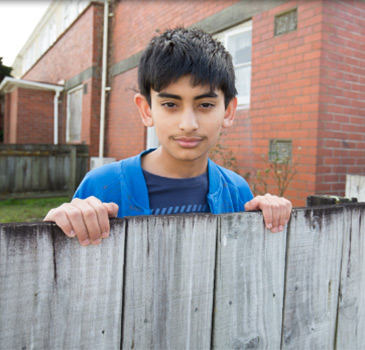Tenancy and housing
Introduction
Everyone renting their home has some basic legal protections
If you’re renting your home (if you’re a “tenant”), you have some minimum legal protections, like you do with a job. Your legal rights don’t just depend on whatever agreement you have with your landlord, whether written or unwritten.
Your minimum rights cover things like how often the landlord can increase the rent, when they can come inside your place, and how many months’ notice they have to give you if they want you to move out.
These minimum protections are in the Residential Tenancies Act 1986 – the main law that deals with tenants and landlords.
These minimum protections only apply to residential tenancies (see: “Who’s covered by the minimum tenancy protections”).
Who’s who
- Tenant – The “tenant” is the person renting the place from the landlord, who has signed a tenancy agreement.
- Landlord – The landlord is the person or organisation you rent your place from – they’re the owner. A landlord can be an individual person, or it can be a private company, a trust, a government organisation like Kāinga Ora (Housing New Zealand), or a local city council. Sometimes you might deal with an agent who works for the landlord, rather than with the landlord personally – for example, the landlord might employ a property management business to deal with tenants.
- Flatmate – For the purposes of this chapter, we’ll use “flatmate” to describe someone who didn’t sign the tenancy agreement, but who lives in a house or flat and pays rent and expenses to the tenants. For more details, see: “Tenants and flatmates: Who’s covered when you’re sharing the rent”.
- Tenancy Services – This is the government agency that deals with tenants and landlords. It’s part of the Ministry of Business, Innovation and Employment (MBIE). You can get information from Tenancy Services about your rights as a tenant – phone them on 0800 TENANCY (0800 83 62 62).
Note: If you have no home to sleep in, and you want a home, there are a few agencies that can help you. You also have some rights to sleep outside if you choose to. For more information on homelessness and sleeping outside, see: “Neighbourhood life / Begging, busking and sleeping rough”.

